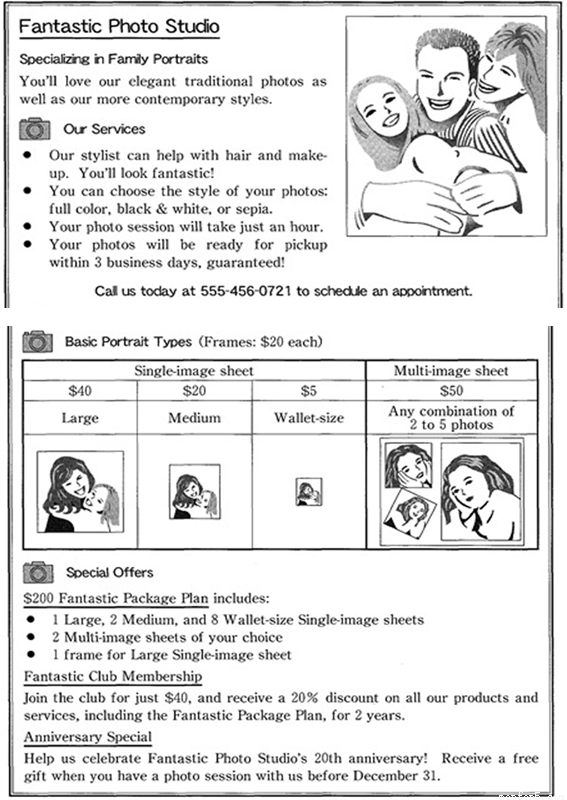题目内容
F-A-M-I-L-Y
I bumped into a stranger as he passed by, “Oh, excuse me, please.” was my reply. He said, “Please ______ me too; I wasn’t even watching you.” We were very polite, this stranger and I. We went on our way and we said ______. But at home a ______ story is told. How we treat our loved ones, young and old?
Later that day, I was cooking the evening meal, and my daughter stood beside me very ______. When I turned, I nearly knocked her down. “Move out of the ______ ,” I said with a ______. She walked away, her little heart was broken. I didn’t realize how harshly I’d spoken.
____ I lay awake in bed, God’s still small voice came to me and said, “While ______ with a stranger, common politeness you use, ______ the children you love, you seem to abuse. Look on the ______ door, you’ll find some flowers there by the door. Those are the flowers she brought for you. She picked them herself: pink, yellow and ______. She stood quietly not to spoil the ______, and you never saw the tears in her eyes.”
By this time, I felt very small, and now my tears began to fall. I quietly went and knelt by her ___ . “Wake up, little girl, wake up,” I said. “Are these the flowers you ______ for me?” She smiled, “ I found them out by the tree. I picked them because they’re ______ like you. I knew you’d like them, especially the blue.” I said, “Daughter, I’m sorry for the way I acted today; I ____ have yelled at you that way.” She said, “Oh, mom, that’s okay. I love you ______ .” I said, “Daughter, I love you too, and I do like the flowers, especially the blue.”
Are you aware that: If we die tomorrow, the company that we are working for could easily _____us in a few days. But the family we left behind will feel the loss for the rest of their lives. And come to think of it, we pour ourselves more into work than to our family—an ____ investment indeed.
So what’s behind the story? You know what is the full word of family?
FAMILY=(F)ather (A)nd (M)other, (I) (L)ove (Y)ou!
Fill life with love and bravery ______ we shall live a life uncommon.
1.A. pass B. excuse C. help D. ask
2.A. hello B. sorry C. good-bye D. again
3.A. similar B. love C. family D. different
4.A. still B. noisily C. surprised D. quiet
5.A. table B. house C. corner D. way
6.A. smile B. frown C. sigh D. anger
7.A. Where B. With C. While D. During
8.A. doing B. treating C. dealing D. saying
9.A. but B. so C. and D. then
10.A. bedroom B. kitchen C. garage D. basement
11.A. red B. purple C. blue D. white
12.A. flowers B. meal C. kitchen D. surprise
13.A. table B. room C. bed D. flowers
14.A. bought B. planted C. picked D. painted
15.A. delicious B. pretty C. honest D. horrible
16.A. mustn’t B. shouldn’t C. couldn’t D. needn’t
17.A. anyway B. already C. somehow D. someday
18.A. fire B. employ C. blame D. replace
19.A. clever B. wise C. bad D. unwise
20.A. or B. but C. and D. then
 名校课堂系列答案
名校课堂系列答案


 nd studied the crowd of people making their way through Grand Central Station. He looked for the girl whose heart he knew, but whose face he didn’t, the girl with the rose.
nd studied the crowd of people making their way through Grand Central Station. He looked for the girl whose heart he knew, but whose face he didn’t, the girl with the rose.